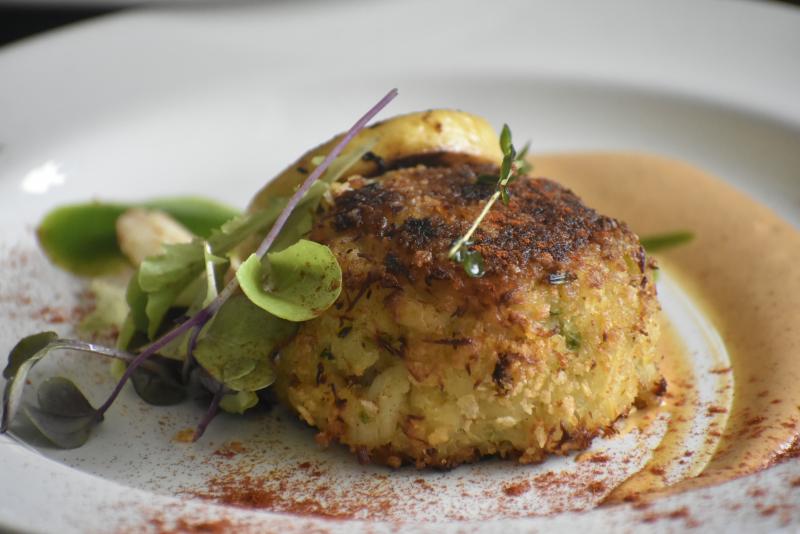LOUISBOURG, N.S. —
The pandemic has definitely put a damper on some industries but one company is feeling crabby in a good way.
Louisbourg Seafoods Ltd. senior operations manager Allan MacLean regularly deals with a lot of crab waste but a few years ago a partnership with a Cape Breton University chemist made it easier.
Stephanie MacQuarrie, associate dean of science and technology and associate professor of chemistry at CBU, began research with Louisbourg Seafoods seven or eight years ago into what could be done with the bodies that are left behind after the shoulders and legs of crabs are removed during processing.
Louisbourg Seafoods was shipping the waste to a composting facility in Guysborough County where it “sits … and it biodegrades,” according to MacQuarrie.
“It starts to break down and about one-third of the stored carbon in that organic waste goes into the ground as like food for microbes and gets repurposed into the soil. … An average of two-thirds of the rest of that stored carbon gets released into the environment as CO2, through decomposition.
“Even though composting is a really good thing … it does generate greenhouse gases over time.”

There’s also the fossil fuel imprint and cost attached to shipping the waste to the facility.
MacQuarrie’s research lab at CBU is focused on converting waste into other materials that could be used for higher-value applications. They theorized the crab waste had the potential to be used in other ways, and began looking into drying it out after processing since it’s about 70 per cent water.
After drying, they took the solid material and crushed it into a powder that was more homogeneous and “very stable” with a bench life of up to three years.
“We looked at applications in agriculture, so using it as a lime replacement for acidic soils, to balance the soil. We've done some projects with local farmers and also some other agricultural-based industries to look at whether or not putting that ground dried crab body powder in the soil would be beneficial and we've seen really good results with that,” said MacQuarrie.
They then converted the crab body powder into a charcoal called biochar and have been able to “look at a variety of different applications” for that as well.
MacLean said in all, the crab waste can be turned into fertilizer, used to strengthen concrete and to neutralize acidic wastewater and there are a number of other smaller opportunities with the biochar.
“During the process of converting the crab bodies into biochar, we make a bio oil as well and that bio oil has a lot of potential,” said MacQuarrie.
“It might be something that could, in the future, be used as a replacement, like bunker oil, to replace fossil fuel oils.”
However, he said their work “really slowed right down” at the beginning of the pandemic because they were relying on CBU students and their access to labs was heavily restricted because of COVID-19.

Luckily though, the lab only closed down from March to roughly the end of June so MacQuarrie said they were able to continue some of their research on the project through the pandemic delayed further advancement.
Despite setbacks from the pandemic, both MacQuarrie and MacLean expressed optimism about the future of this kind of work. MacLean said there’s still “a lot of interest” about their research and said he gets calls inquiring about it fairly frequently.
“There's people interested in certainly looking at trying to commercialize this project.”
MacQuarrie believes society will find ways to minimize its reliance on fossil fuels or save them for things that can’t be replaced. She also thinks that research into waste reduction and diversion isn’t going anywhere.
“Taking something that's considered a waste stream and finding high value in it is becoming more and more important.”
Jessica Smith is a climate change/environmental and natural resources reporter with the Cape Breton Post.
RELATED:
The Link LonkFebruary 23, 2021 at 02:19AM
https://ift.tt/3dzF7Ju
Feeling crabby: Pandemic slows crab waste research but Cape Breton industry still ‘hopeful’ for future - TheChronicleHerald.ca
https://ift.tt/2MkGRbk
Crab

No comments:
Post a Comment